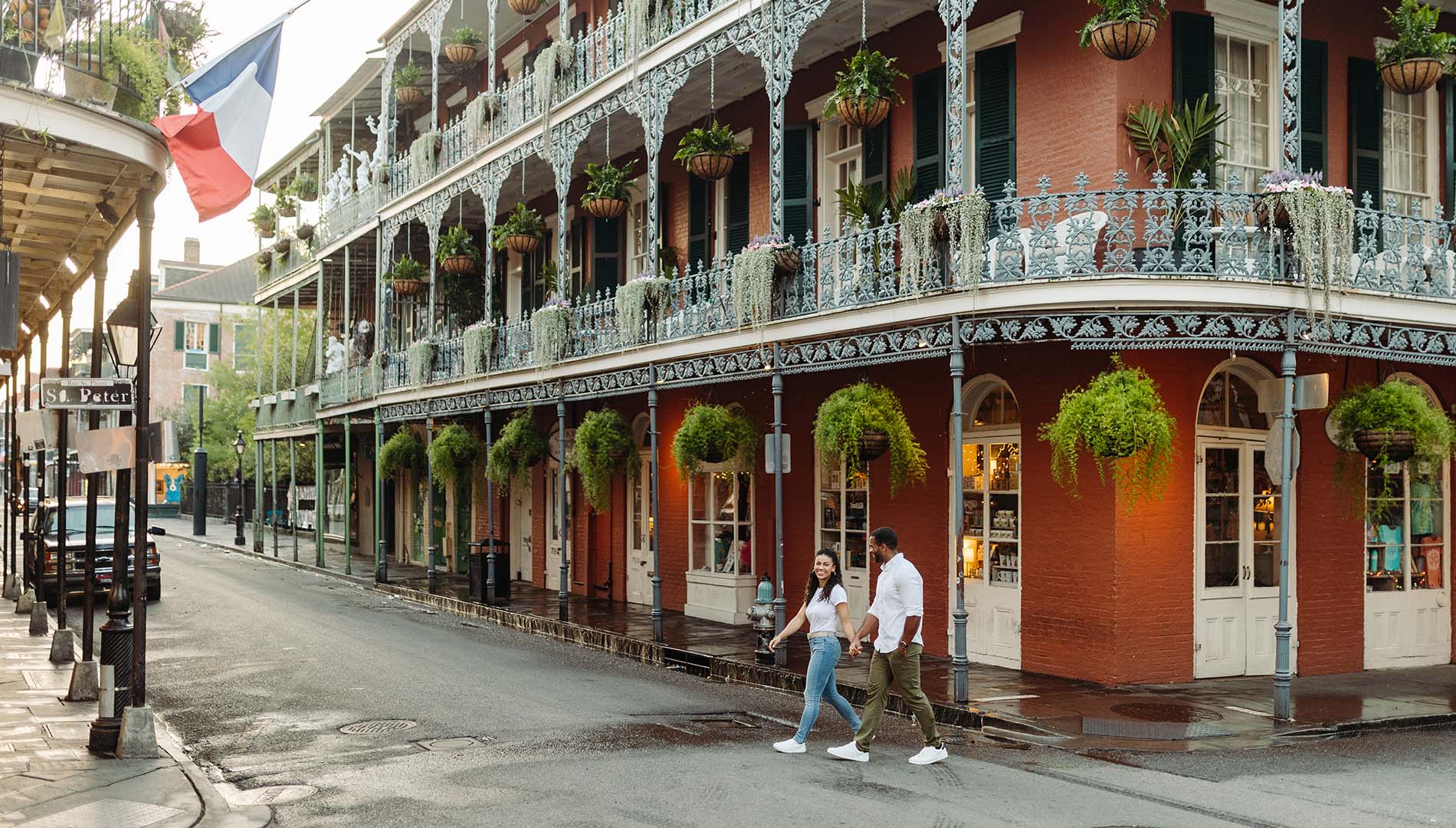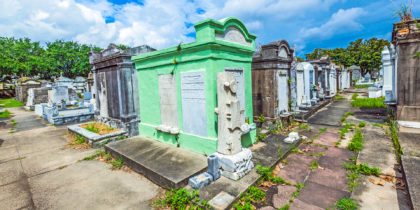From dark swamps thick with cypress trees to sun-kissed marshes playing host to herons and egrets, the Mississippi River Delta is a watery but photogenic wonderland. Much of southern Louisiana, where rivers empty their waters and sediment into the Gulf of Mexico, comprises the delta.
Exploring New Orleans
Start exploring in the hub of New Orleans, where the food, music and architecture celebrate the region’s Creole and multicultural roots.
French, Spanish and Caribbean immigrants, as well as West African slaves, settled New Orleans in the early 1700s and early 1800s. Their descendants, known as Creoles, have preserved their vibrant culture, contributing to the city’s rich diversity. Bright Creole cottages and balconied townhouses draw admirers to the French Quarter.
A global array of flavors — West African okra, Native American bay leaves, French roux — mingle in hearty gumbos. Events in New Orleans are often amusingly diverse. For example, themed Mardi Gras parades spotlight everything from dogs to women’s shoes to Chewbacca.
Fuel up on coffee and beignets at Café du Monde in the French Quarter, then wander across the street to explore Jackson Square. The St. Charles Streetcar stops near the National WWII Museum and rolls through the Garden District. End with a classic po’boy sandwich at Parkway Bakery and Tavern followed by jazz at Preservation Hall.
How to Get to Bayou Country
The best way to explore the delta region is by car. U.S. Highway 90 is the primary highway through the region and its low-lying wetlands. Travel 245 kilometers west from New Orleans to Lafayette, Louisiana.
See Jean Lafitte National Historical Park & Preserve
Your first stop should be Jean Lafitte National Historical Park & Preserve. Lafitte was a French-American pirate who sold smuggled goods and slaves from the swamps south of New Orleans in the early 1800s. Today, wooden boardwalks twist through these spooky wetlands at the 9,308-hectare Barataria Preserve.
Trails zigzag past alligators, bald cypress trees, live oaks and a Native American shell mound. Cajun culture grabs the spotlight 95 kilometers west at the park’s Wetlands Acadian Cultural Center in Thibodaux. Cajuns are descendants of French-Canadian refugees who migrated to Bayou Country in the late 1700s. Many made their living fishing and hunting in the bayous. Ranger-led boat tours explore the adjacent Bayou Lafourche in spring and fall.
Explore the Swamp
The Mississippi River Delta is disappearing at the rate of one American football field (110 meters by 49 meters) per hour due to man-made and natural forces.
To explore its fragile beauty, drive 26 kilometers south to Houma. The Intracoastal Waterway and several bayous flow through this city of 34,000 people, making it a prime spot to start swamp tours.
Look for eco-minded trips, alligator-feeding tours and excursions with a focus on local history and culture.
When on the water, watch for the mysterious rougarou. According to Cajun folklore, this red-eyed werewolf-like creature roams the swamps searching for naughty children and Lent-breaking Catholics.
Wander Jungle Gardens and Taste Tabasco Sauce
Avery Island is a giant salt dome island. Since 1868 the McIlhenny family has mined the salt for its iconic Tabasco pepper sauces. Learn about production of this ubiquitous hot sauce on the factory tour, then explore the lush Jungle Gardens, opened to the public by company President Edward Avery “Ned” McIlhenny in 1935.
Hugging Bayou Petite Anse, this sprawling 69-hectare park brims with exotic plants, colorful blooms and live oaks. Alligators lumber across the trail and snowy white egrets take flight from the rookery.
Find Food and Entertainment in Lafayette and Breaux Bridge
Forty-eight kilometers north, the city of Lafayette and its sidekick Breaux Bridge are the dancing heart of Cajun country. Crowds bob into the night at the Blue Moon Saloon, a Lafayette legend for its lively Cajun and zydeco bands. Keep dancing in Breaux Bridge at Café Des Amis, where zydeco bands and Cajun breakfast keep the vibe upbeat on Saturday mornings.
More than 35,000 people roll into town in early May for the Breaux Bridge Crawfish Festival. Crawfish, which resemble mini-lobsters and are in season from about March to June, are found in dishes all around the region. Order a bag of boiled crawfish to go from Louisiana Crawfish Time in Lafayette, then crack into your mudbugs at Bayou Cabins. These wooden cabins, which are adorned with bright strings of lights, overlook Bayou Teche.




